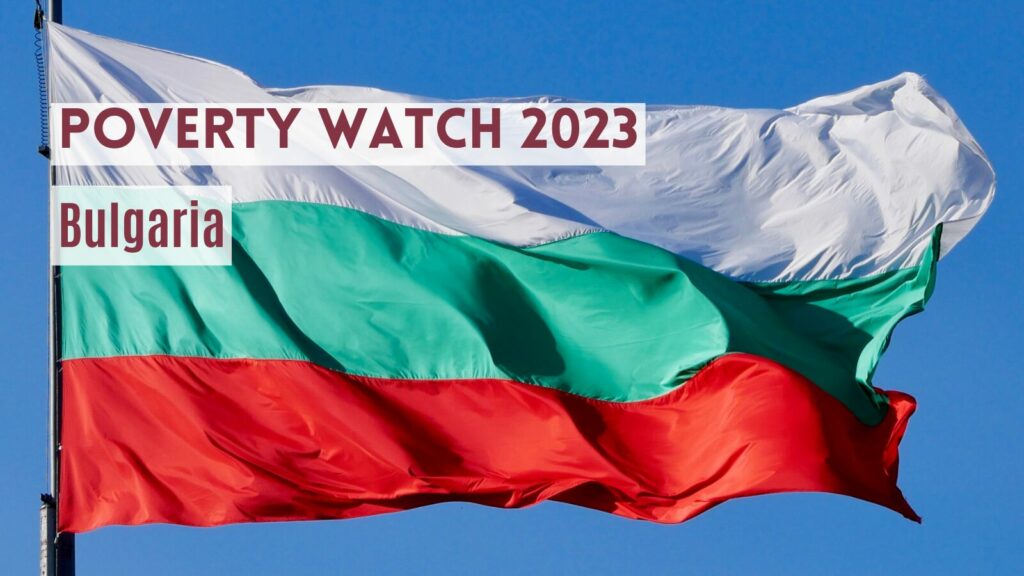
This Poverty Watch discusses the state of poverty and inequalities in Bulgaria in 2023, some political measures undertaken and fiscal (in)justice. A special focus is on the link between poverty and the green transition, as well as the conditions the transition to be just.
The latest data on poverty in Bulgaria follow the trends and the situation from previous years. About a third of the population lives in poverty and social exclusion.
It could be argued that in the last two years, some measures were undertaken in Bulgaria aimed at increasing basic incomes – salaries and pensions. These measures increased the minimum wage and minimum seniority and age pensions and also a range of related payments.
However, these measures do not provide an overall effect in terms of restructuring society – in essence, they preserve and stimulate high inequalities, although they provide slightly more adequate minimum incomes. Thus, the various measures undertaken are mainly aimed at mitigating the consequences of unfavourable developments, but do not have a mobilizing effect so as to change the situation.
Against this background, social policy continues to function as a last and residual resource mitigating the consequences while a series of other policies (economic, financial, tax, etc.) intensively generate poverty and social exclusion. Accordingly, opportunities to talk about social rights in a meaningful way are extremely limited.
